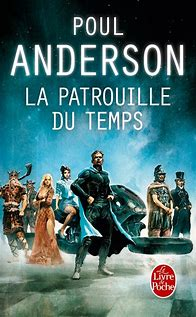Sometimes we cannot understand a passage on a single reading of a text, e.g.:
"Heidhin grinned. 'I know the Romans better than you, my Edh.' Did she wince? He hastened on: 'I mean I have dealt with them and theirs, I, a war chieftain.'" (3, p. 499)
Heidhin must correct himself. We will learn how Edh "knows" the Romans but, by then, we will have forgotten this passage. We understand it on rereading.
Characters conceptualize crises completely differently. To the Time Patrollers, the crisis is that events approach a turning point. To Heidhin, the crisis is that the prophetess, Edh, has persuaded the tribes to give more to the goddess, Nerha, than to the sky gods:
"'If we do not make our peace with them, they will withdraw victory from us. I have read this in the stars, the weather, the flight of ravens, the bones I cast.'" (7, p. 531)
Superstitious nonsense? Heidhin continues:
"'And what if I am mistaken? The fear itself is real in men's hearts. They will begin to hang back in battle, and the foe will break them.'" (ibid.)
Heidhin senses and interprets real psychosocial forces but articulates them differently.

1 comment:
Kaor, Paul!
True! WE today would say Heidhin had a shrewd, practical understanding of the Romans and an equally shrewd understanding of the psychology, fears, ideas, beliefs, etc., of his men.
Ad astra! Sean
Post a Comment